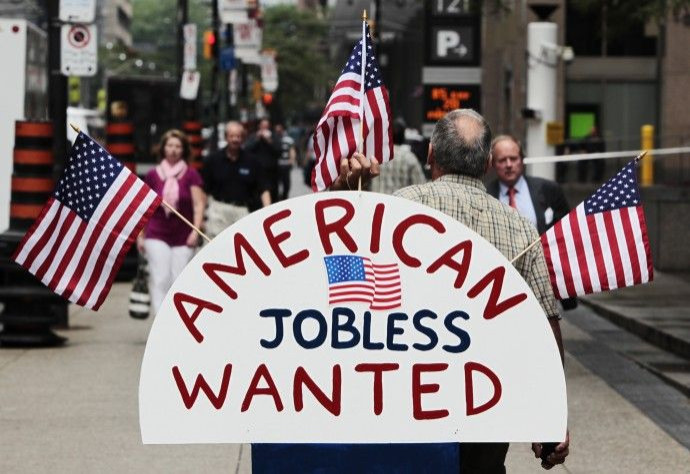Rising unemployment among less-educated U.S. men part of longer-term trend

While the Great Recession has raised the unemployment rates for virtually all Americans, it has served to heighten what has already existed as a long-term trend: the declining employment levels of American men, particularly those who are less educated.
The latest government unemployment figures showed that adult makes in the U.S. now have a jobless rate of 10.0 percent, slightly above the national average of 9.8 percent. (The jobless rate for adult women is 8.4 percent).
“Up until the early 1970s, virtually all prime-aged men were gainfully employed -- regardless of whether they had a high school diploma or a college degree, said a report from the Hamilton Project, an economic policy initiative at the Brookings Institution.
“Over the last 40 years, however, the U.S. has witnessed a dramatic change in the employment situation for men, particularly for less-educated workers who have faced greater challenges finding jobs and have increasingly dropped out of the labor force.”
Indeed, since the 1960s, while employment rates for men with at least a bachelor’s degree has fallen only slightly (hovering well above 90 percent), employment of men with only high school diplomas has plunged considerably (from a high of 97 percent in 1967 to only 76 percent today).
One reason for these figures can be traced to the decline of the U.S. manufacturing sector, particularly the constructive and automotive industries, once the exclusive preserves of male workers.
Meanwhile, over that period, employment rates form U.S. women have surged (to just under 80 percent for college-educated females, and to just under 70 percent for women with high school diplomas).
Since the onset of the recession in December 2007, employment for men with high school diplomas has plunged 8 percent, while falling a milder 3 percent for college-educated men.
“The decline in employment among less-skilled men over the last 40 years also reflects a long-run trend wherein fewer and fewer of these men work, even when economic times are good,” The Brookings study stated.
Why have we witnessed this long-term job decline for men lacking college degrees?
“Changes in employers’ needs and their demand for workers with specific skills brought on by technological advancement, economic globalization, and increased competition for business investment are one cause of declining opportunities for high-school graduates,” Brookings stated.
“Other causes include the declining influence of unions, which have traditionally secured steady employment for less-educated workers.”
In addition, Brookings said, workers with work-limiting disabilities are more likely to apply for Social Security Disability Insurance benefits rather than stay in the labor force. For example, in 2008, 5.6 percent of men ages 40-59 had effectively left the workforce permanently to take up these benefits.
In addition, the U.S. is now significantly falling behind nations like Japan, Canada and South Korea in turning out college-educated workers, exacerbating the problem.
“While college completion rates in these countries have surged over the last 30 years, the share of young men holding bachelor’s degrees in the U.S. is roughly the same today as it was in 1980,” Brookings noted.
“In short, the increase in the number of higher-skilled workers in the U.S. has slowed at the very same time that the rewards to staying in school longer -- more job opportunities, higher wages, and better benefits -- have increased.”
© Copyright IBTimes 2024. All rights reserved.





















